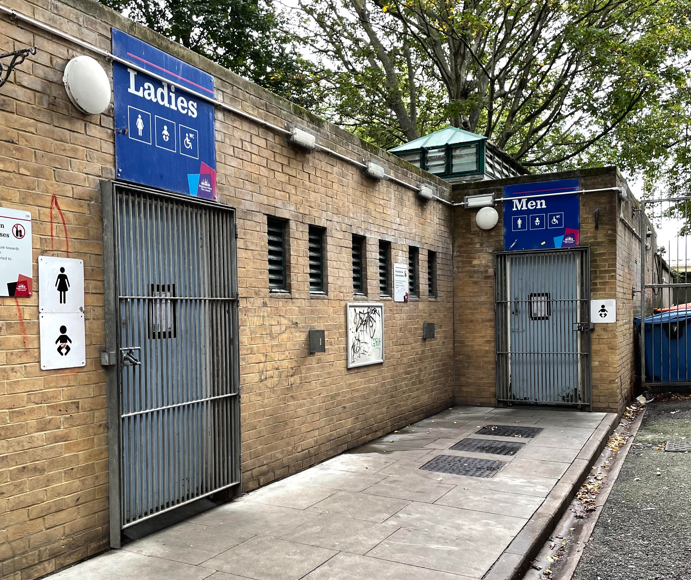Since I wrote deploring the state of Brighton and Hove’s public toilets, I’ve been pleased, though not surprised, at the number of people who have said how much they agree.
I’ve heard many horror stories. One man, whose 80-year-old wife has Alzheimer’s disease, described a recent incident in the Pavilion Gardens.
He’d accompanied his wife to the women’s toilets only to discover they were closed. Noticing that the doors were unlocked and a female council employee was present, he asked her if she would allow his 80-year-old wife to go in. In fact, he pleaded with her, but she brusquely refused.
He told me awkwardly: “I didn’t think I could complain.” This courteous, gentle couple are prominent in community life and have contributed much to this city.
It is a terrible thing that, in later life, they and others like them should be humiliated by being denied this basic service. To be disempowered and embarrassed by a council official’s lack of courtesy and understanding adds insult to injury.
It beggars belief that the council has now decided to close 17 of the city’s 57 public toilet blocks, most of them in heavily used parks and gardens, for a full six months.
The council has blamed its actions on government cuts and lack of staff. However, other towns and cities in the south east, all grappling with similar difficulties, do much better.
I’ve lost count of the number of bewildered people who have said: “If councils in (Lewes, Horsham, Shoreham, Alfriston, Canterbury or wherever) can provide enough clean toilets, why can’t Brighton and Hove?”
It’s true that the city has more chaotic drug users than many other places but, arguably, that too is a result of poor management. Councils have to manage the challenges they face.
It’s entirely possible to run safe, clean, well-managed public toilets and to make sure they are accessible to those who need them.
The first step is to stop closing them. Then to repair those that are damaged or blighted by graffiti, ensuring they are properly equipped with seats, lockable doors, soap and water.
The next is to employ regular decently paid cleaners, ensuring on-site supervision for larger toilets and those vulnerable to damage.
Most women will remember a time when public toilets were staffed by a trusted female employee, who kept seats wiped and floors mopped, who polished brass, reported damage and managed poor behaviour.
In between times, these women sat, drank tea and knitted in their small cubby-hole “offices”. A saucer was laid out for tips and if people could afford it and if the loo was well-kept, they would leave some coins.

We were grateful to these women, as we are still to rubbish collectors, street sweepers, carers and cleaners, all of whom do valuable jobs that others avoid.
Looking back on it, it’s pretty clear to me that some of these women probably had mental health difficulties or educational challenges or had had to deal with trauma. Quiet, routine work suited them. I could understand that.
When I first came to this country as an immigrant, I was traumatised, though I’m reluctant to use that terminology. I remember, at the time, thinking I wouldn’t mind having a quiet, routine job like that, at least for a while.
I find it difficult to believe that if such jobs were available again there would not be people (perhaps job-sharing) keen to do such work again and do it very well.
Over decades our council has been far too ready to cut manual jobs while under-paying and under-valuing those that remain.
HR managers who have no experience of manual work advertise manual jobs in places where the people who could do them won’t see them. Or design jobs in such a way that no one with a disability, mental health need or educational challenges would or could apply for them.
Successive councils have used their commissioning powers to increase graduate employment while systematically stripping our public places of the manual workers needed to keep our parks, play areas, streets and toilets clean and safe.
Planners have provided housing for students rather than safeguarding genuinely affordable accommodation for lower-paid workers.
Politicians have tolerated an economy fuelled by recreational use of illegal drugs, paying scant regard to wider social consequences.
Having failed to fund enough effective drug treatment facilities or properly contain anti-social behaviour, they expect members of the public to deal with the consequences, whether closures or criminality.
If cuts are needed to properly fund our public toilets, and other basic public services, may I suggest that when government money becomes available attached to concepts like health, diversity and inclusion, the council does not instantly move to recruit yet another white collar “community engagement” or “diversity and inclusion” officer.
Instead, it should fund public service manual worker posts, imaginatively advertised and possibly part-time, so that disabled people and those who are older or have experienced mental and other health problems can apply and once again serve the city with pride – at the same time ensuring our toilets are kept open and our public spaces safe.
Jean Calder is a campaigner and journalist. For more of her work, click here.










Therein lies the problem. Nobody wants to do this work anymore no matter how much you advertise or pay them. Thats why they are closed
Reopen the toilets. It’s like they are trying to ruin Brighton for all of us. Very sad.